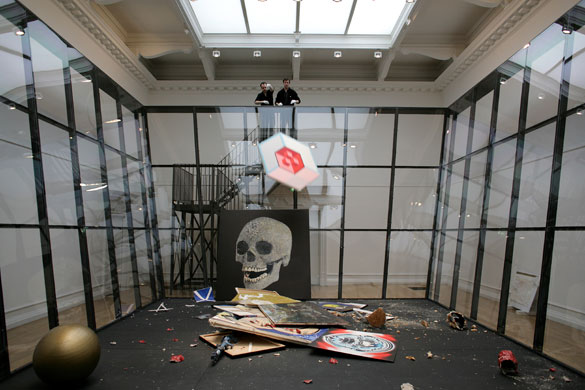 |
| Ai Weiwei's ceramic seeds (left) next to real sunflower seeds (right) |
There is a tendency to review exhibitions before they really begin. Yes, one can get a glimpse of the artist/curator’s intentions but only time can unravel how comfortably it will sit with the pubic. Michael Landy’s bin, for example, constructed at South London Gallery earlier this year, never managed to fill up and that half-full image of it has stuck. Today we are about half-way through Ai Weiwei’s turbine hall exhibition and very few had sat down to discuss how the sequence of events may have significantly changed the work.
 |
| Michael Landy's empty bin at South London Gallery, 2010 |
‘Ai Weiwei – without fear or favour’, reads the title of an Imagine programme exploring the artist’s work. The same should be true for us. I doubt this was the intention, but being closed off, the work now says something different but not less relevant. For anyone who has also dared to jump the barrier to the seeds, I have to say the feeling was one of incredible freedom. It takes some courage and backbone even though there are no actual repercussions, unlike for many people who disobey authority in China. It has some direct parallels to the political landscape in so many countries, where reasons are fabricated to direct people away from even contemplating certain options and lead them by the nose towards other ‘accepted’ ones. I am not saying the Tate had fabricated the dust story, but if it had, it would have made one of the most gutsy and controversial exhibitions of the year. As an experiment to see how many people dared to defy authority to do what they all knew the artist had intended.
Ai Weiwei’s work is deeply entangled with the oppressive regimes and how they can create boundaries for the mind. I think that the only way to enjoy his Turbine Hall installation is to challenge the stiff authority of our own factory-like art institution and to run across the seeds. The experience may awaken us to all the other rules we take for granted in our own society.
Watch a BBC Imagine Documentary on Ai Weiwei here until 28th Dec 2010.
